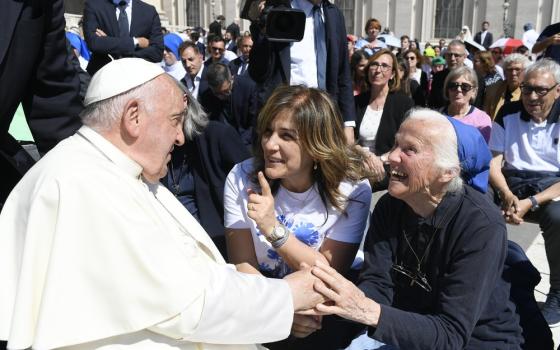
(Unsplash/Bruno Van Der Kraan)
In the fall of 2020, I was hit on the head and experienced a traumatic brain injury. To say that my life turned upside down seems like an understatement. Due to daily migraines, fatigue and cognitive and visual impairments (to name just a few), I lost my capacity to remain at my ministry, connect with others and live independently.
A typically positive person, I tried to hold onto hope and believe others when they said, "things will get better." I would remember all the great things I had lost, waiting for the day when I would return to full health. However, as months passed, I continued to experience overwhelming physical pain, loss and difficulties. The hope I clung to only temporarily eased my pain and grief.
I rode the optimism, believing that I'd feel better in the future, but eventually I would be dropped back into my painful reality. As this pattern continued, I started spiraling into despair as I failed to meet my expectations and those of others — to heal and return to my life of service where I had purpose and meaning. Hope left me empty-hearted and unable to accept what I was experiencing. This was not hope at all — rather it was wishful thinking and attachment to specific outcomes.
Advertisement
In the darkness, with a glimmer of life holding on, I went searching for a different kind of hope that would guide me forward. I needed a hope that both comforted and empowered me. A hope that spoke to me in the moments of pain and fatigue, grief and despair. If hope in a better future did not last, what would a hope that can guide me through the present look and feel like?
I recently heard Tara Brach talk about "wise hope." As I listened, her descriptions rang true with my own experience. She contrasts a mature hope with the kind of hope I was living, which was led around by my ego's wish for things to happen a certain way. As I lived into my questioning — pondering on a true and wise hope — I was reminded that all of life is good and beautiful. Wise hope revealed itself to be beyond a desired outcome or waiting for better times, it is seeing the light in the darkness.
What was the light I was seeing and experiencing in my darkness? As I widened my vision, hope appeared as comfort in the pain, companionship in isolation, a listening heart when I was confused, an embrace when I felt alone. This hope reminded me that everything belongs. In my despair, hope can truly shine. What is love without having felt disconnected? What is joy without knowing the depths of loss?
As I continued to listen, hope asked me to not make my suffering the enemy. When I cover up or deny the painful parts of my reality, I also block the radiance of the compassion and care that can shine brightly in my suffering. This makes it difficult for me to fully receive and appreciate the way love shows up in my most painful moments. The more I allow and sit with the depths of change, loss, failure, pain, or confusion, the further I can dive into and experience the wells of love, compassion and understanding.
In my despair, hope can truly shine. What is love without having felt disconnected? What is joy without knowing the depths of loss?
Ultimately, hope teaches me to stop waiting and start creating. As I face my suffering and meet it with compassion, I begin to see that I have a choice in this moment. I can begin to tend to and grow the light within me. I can choose how I respond to myself and others in times of great difficulty. Instead of wishing for a better future, hope reminds me that the better already exists now. I can amplify love, joy and ease now. Hope shows me that pain and loss allow me to cultivate compassion, generosity and gratitude. I can foster understanding and peace in my own life. In doing this, I can embody hope for others. In learning to be with my suffering, I am learning to be compassion in response to the suffering of others.
Brach defines wise hope as "what matters most to your wise awake heart; it's what our heart trusts is possible." When I stopped running away from the pain and calling it an enemy to the life I desire, hope connected me to my soul where I can embrace the opportunities that can be born only in times like these. I hope because I have experienced how suffering can be the fertile ground for a kingdom of love to sprout within me. When I let hope lead me, it transforms how I see everything, guiding me to see the possibilities as it empowers me to be the light that can only shine in the darkness.
I wonder, where do you see and feel hope in your life? What matters most to your soul? How is hope guiding you?








